Israeli military strikes across Gaza have killed at least 61 people in the space of 48 hours, local medics said, as Israeli forces battled Hamas-led militants in the territory.
Eleven months into the war, numerous rounds of diplomacy have so far failed to clinch a ceasefire deal to end the conflict and bring the release of Israeli and foreign hostages held in Gaza as well as many Palestinians jailed in Israel.
An Israeli airstrike in on the Halima al-Sa'diyya school compound serving as a shelter for displaced people in the Jabalia urban refugee camp killed at least eight people and wounded 15 others, medics said.
The Israeli military said the strike had targeted a Hamas command centre inside the compound. It accused the Islamist militant group of repeatedly exploiting civilians and civilian infrastructure for military purposes, an allegation Hamas denies.
In Gaza City, five more people were killed in a strike on a house.
An Israeli strike killed four people and wounded 25 others at Amr Ibn Ala'as school, which also houses displaced families in the Sheikh Radwan suburb of Gaza City, Palestinian medics said.
The Israeli military said the air strike targeted a command centre operated by Hamas gunmen in the compound that had previously served as a school.
Palestinian health officials said Israeli military strikes had killed so far 28 people across Gaza today.
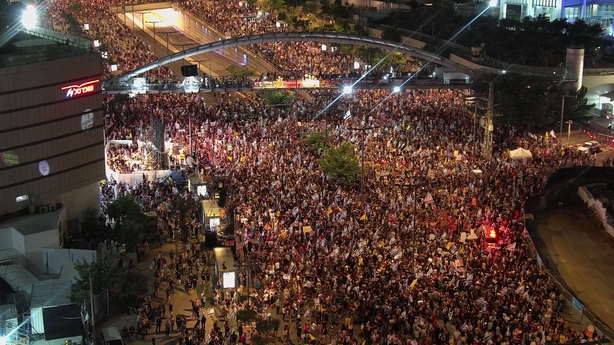
The armed wings of the Hamas, Islamic Jihad and Fatah groups said they had fought Israeli troops in Gaza City, in central areas and in the south with anti-tank rockets and mortar bombs, and in some incidents detonated bombs to target tanks and other army vehicles.
The two warring sides continued to blame one another for the failure of mediators, including Qatar, Egypt and the United States, to broker a ceasefire. The US is preparing to present a new proposal, but the prospects of a breakthrough appear dim as gaps between the sides remain large.
CIA Director William Burns, the chief US negotiator, told an event in London that a more detailed proposal would be made in the coming days.
Tens of thousands of Israelis joined protests in Tel Aviv and other cities, demanding Prime Minister Benjamin Netanyahu and his government make a deal under which the remaining 101 hostages would be released.
The killing of six hostages last week prompted an outpouring of anger and grief that led to mass protests.
The hostages had been shot in the head by Hamas, Israel said, not long before their bodies were found by troops in a Gaza tunnel last Saturday.
"They could have been saved," said Einav Zangauker, whose 24-year-old son Matan had been abducted by militants from his home in Nir Oz kibbutz.
"As long as Netanyahu is in power, we will keep getting the hostages back in body bags," he added.
Pauses in fighting let polio vaccinations continue
On Thursday, US Secretary of State Antony Blinken said it was incumbent on both Israel and Hamas, which ran Gaza before the war and was responsible for the 7 October attack on Israel that triggered it, to make concessions to reach a deal.
Today, senior Hamas official Hossam Badran said the group had made no new demands and remained committed to a 2 July proposal put forward by the United States, accusing Mr Netanyahu of attaching new conditions that would not end the war.
Mr Netanyahu says it was Hamas that introduced unacceptable conditions.
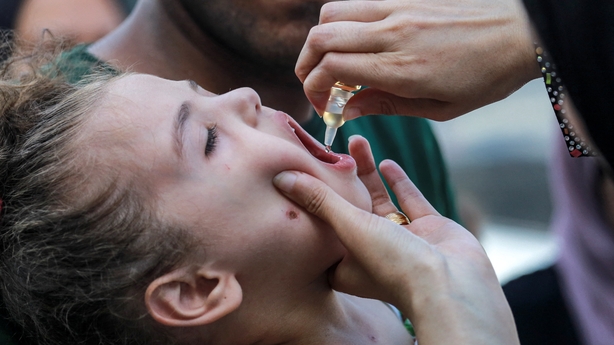
Despite the deadlock, the United Nations, in collaboration with local health authorities, has pursued a campaign to vaccinate 640,000 children in Gaza after its first polio case in around 25 years. Limited pauses in the fighting have allowed the campaign to proceed.
UN officials said they were making progress, having reached over half of the children needing the drops in the first two stages in southern and central Gaza.
The campaign will move tomorrow to northern Gaza. A second round of vaccination will be required four weeks after the first.
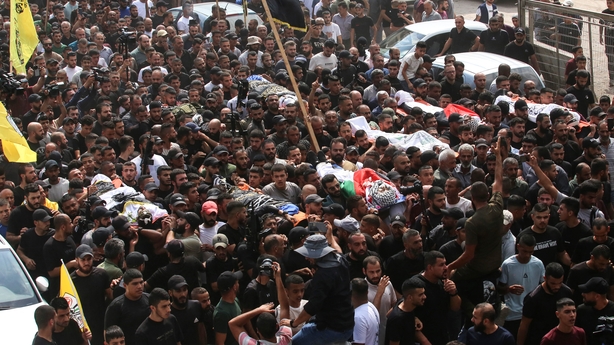
The latest bloodshed in the decades-old Israeli-Palestinian conflict was triggered on 7 October when Hamas attacked Israel, killing 1,200 people and taking about 250 hostages, according to Israeli tallies.
Israel's subsequent assault on Gaza has killed more than 40,900 Palestinians, according to the local health ministry, while also displacing nearly the entire population of 2.3 million and causing a hunger crisis.
As the war enters its 12th month, UN Palestinian refugee agency (UNRWA) chief Philippe Lazzarini posted on X on: "Eleven months. Enough. No one can take this any longer. Humanity must prevail. Ceasefire now."
Family demands independent probe into killing of American activist
The family of a Turkish-American woman shot dead while demonstrating against Israeli settlements in the occupied West Bank demanded an independent investigation into her death, accusing the Israeli military of killing her "violently".
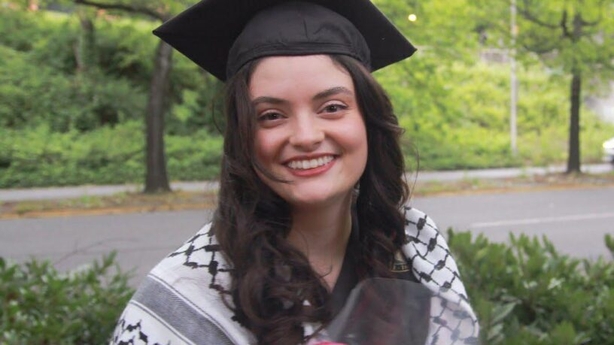
Aysenur Ezgi Eygi, 26, was "shot in the head" while participating in a demonstration in Beita in the West Bank yesterday.
"Her presence in our lives was taken needlessly, unlawfully, and violently by the Israeli military," Ms Eygi's family said in a statement.
"A US citizen, Aysenur was peacefully standing for justice when she was killed by a bullet that video shows came from an Israeli military shooter.
"We call on President (Joe) Biden, Vice President (Kamala) Harris, and Secretary of State (Antony) Blinken to order an independent investigation into the unlawful killing of a US citizen and to ensure full accountability for the guilty parties."
We need your consent to load this rte-player contentWe use rte-player to manage extra content that can set cookies on your device and collect data about your activity. Please review their details and accept them to load the content.Manage Preferences
The Israeli military said its forces "responded with fire toward a main instigator of violent activity who hurled rocks at the forces and posed a threat to them" during the protest.
Ms Eygi was a member of the International Solidarity Movement (ISM), a pro-Palestinian organisation, and was in Beita for a weekly demonstration against Israeli settlements, according to ISM.
In recent years, pro-Palestinian demonstrators have frequently held weekly protests against the Eviatar settlement outpost overlooking Beita, which is backed by far-right Israeli ministers.
During yesterday's protest, Ms Eygi was shot in the head, according to the UN rights office and Rafidia hospital where she was pronounced dead.
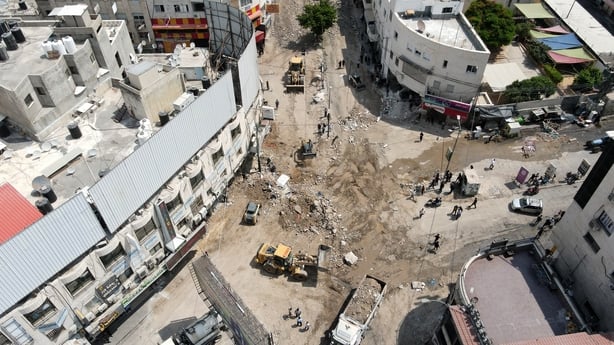
Turkey said she was killed by "Israeli occupation soldiers", with President Recep Tayyip Erdogan condemning the Israeli action as "barbaric".
The US government called it a "tragic" event and has pressed its close ally Israel to investigate.
But her family has demanded an independent probe.
"Given the circumstances of Aysenur's killing, an Israeli investigation is not adequate," her family said.
Her family said Ms Eygi always advocated "an end to the violence against the people of Palestine".
Israeli settlements in the West Bank - where about 490,000 people live - are illegal under international law.
Since 7 October last, Israeli troops or settlers have killed more than 690 Palestinians in the West Bank, according to the Palestinian health ministry.
At least 23 Israelis, including security forces, have been killed in Palestinian attacks during the same period, according to Israeli officials.

